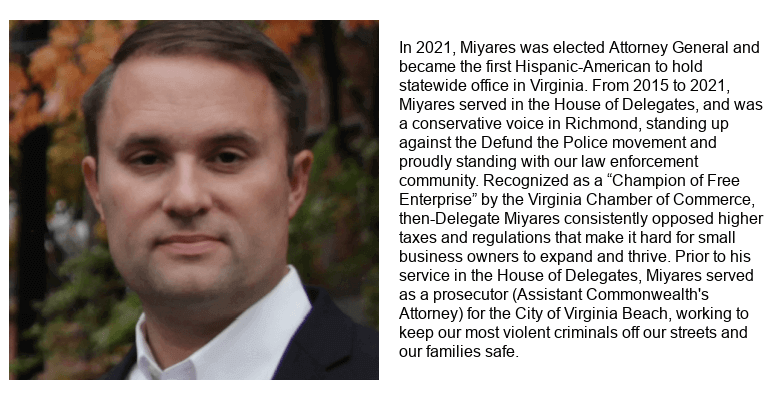Virginia Attorney General Jason Miyares (R) has filed a brief in support of a West Point, Virginia, teacher who was fired for refusing to use the preferred pronoun of a transgender student.
No State has more jealously guarded and preserved the questions of religious belief and religious worship as questions between each individual man and his Maker than Virginia. The Commonwealth’s interest in securing the religious liberty of its citizens against interference or penalty from any government remains as strong today as it was when those [constitutional] provisions were adopted more than 200 years ago.
We would appreciate your donation.
Both Miyares’ office and West Point High School French teacher Peter Vlaming argue that Virginia’s religious protections are more robust than the “watered-down version of the federal right” protected in the U.S. Constitution.
“Virginia’s broad protections of its citizens’ religious liberty—more extensive than the protections provided by the federal Constitution—are a product of Virginia’s pluralistic origins and tradition of equal opportunity for its citizens regardless of their beliefs,” Miyares’s brief continues.
CONTINUE TO BREITBART ARTICLE

